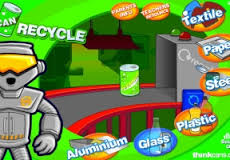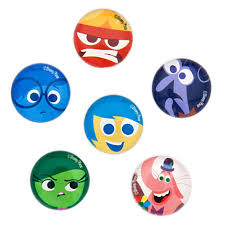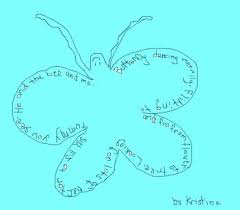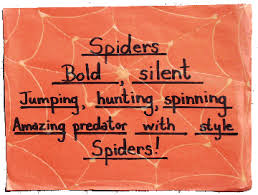Category Vocabulary

The Rainforest: A Camp Lesson Plan
As mentioned in the previous post, The U.S. embassy in Ecuador holds an English immersion camp for scholarship high school students. A group of fellow PCVs are charged with presenting backgroud information on the rainforest for the 2016 camp. Here is the lesson plan, which may give you ideas for your own camp.

Recycling Facts, Games and Crafts
The U.S. embassy in Ecuador runs an English immersion camp, which has a distinct theme each time, for high-performing high schools students, who also receive scholarships for English lessons with a private institution. The theme for the spring 2016 camp, which will be held in the Mindo cloud forest, is our natural world and its conservation. PCV […]

Minding Our Emotions
Pixar’s animated film Inside Out can be a teaching tool to help students understand and express their emotions. The website provides four marvelous activities for students of all ages and language levels. Playing the movie and doing one of the activities could be a multipart class or an English club session.

Picture-bound Travel Adventure
Intermediate- level EFL students work in groups to write and tell a creative, cohesive travel adventure based on the people and places they select from pictures.

Visual Verb Variations
Building vocabulary is fundamental to literacy and creative writing. This lesson gives teachers a visual model to help their students build verb alternatives and, thereby, refine their choice of alternative words so that the verb effectively describes their thoughts.

Anecdotes: Tell Your Story
Sharing anecdotes gives students a chance to speak and write confidently about topics of their choice.

Shape Poems: Writing Starting From Vocabulary and Visual Images
A shape poem is a type of poetry that describes an object and is shaped the same as the object the poem is describing. Here language and vocabulary acquisition and exploration are developed into visual and sound patterns as students create shape poems. What a fun way to bring writing into the classroom!

Seeing Healthy Answers
Kevin McCaughey’s article “Practical Tips for Increasing Listening Practice Time ” in English Teaching Forum (Vol. 53, No.1, 2015) points out that students often don’t get much listening time in what teachers think are listening-focused activities. He offers tips on managing classroom listening activities where teachers can “see it” happen. This lesson uses a healthy eating […]

Having Fun Writing Poetry
Ecuador TEFL PCV Miranda Duncan shares her intriguing approach to making writing poetry fun using the cinquain poem as a model.

Online Vocabulary Sites
PCVs use a variety of methods to help teachers and students increase their vocabulary. Ecuadorian teachers and college students hoping to study abroad often must take English fluency tests that require knowledge of specific terms and words. These online sites offer words and phrases that frequently appear on the tests.

Campus Challenges
Ecuadorian TEFL PCVs, and probably those in other countries, assist students and teachers alike in preparing to take the TOEFL or Cambridge exams to study abroad or to meet government requirements for teaching positions. Understanding U. S. college campus environments and vocabulary and the situations new students face is crucial to score well on a […]

How Often Do You…?
This post has instructions for a game that gives students practice asking questions using “How often do you…?” do a particular activity and answering the questions using adverbs of frequency.

Vocabulary and Context Clues
ESL and EFL learners find many words they don’t understand in their reading. Rather than stopping to look up each new word in the dictionary, they can use context clues to guess the meaning of new vocabulary. This lesson, adapted from a Douglas Learning Centre handout, explains the clues students can use to ascertain meaning and become […]

Love on a Leash
While dogs, “man’s best friends,” have long occupied a special place in US homes, keeping a dog as a pet in Ecuador is a relatively new custom. Certainly dogs have worked in the fields for centuries, but many Ecuadorians and other peoples are unaware that dogs have a remarkable ability to bond with humans. This makes […]

Chance Encounters
This activity uses pictures of a wide range of people for whom students will write dialogues that might occur if the individuals had a chance meeting somewhere in the world. The lesson plan is adapted from one created by Allegra K. Troiano, Senior English Language Fellow (ELF), US Embassy.

Chicago Food Tour Cultural Exchange
We love food, especially food that stimulates and surprises! EFL students and teachers are usually surprised to learn that the US population comprises every nationality on Earth. Realizing how diverse our country is–waves of immigration have been our history–many EFL learners understand that our language varies across the nation, not to mention internationally. This lesson […]

Sharing the News(letter)
Asking your students to share news, culture, traditions, and life stories with students in the US by writing a newsletter (or creating a video) with a partner Peace Corps World Wise School is a rewarding experience for both sides.

Pastimes Mingle
In this activity and lesson plan, adapted from an article from the US Department of State’s English Teaching Forum 2014, No 2, students mingle and interact, in pairs and then with the rest of the class, as they discuss pastimes.

Vocabulary: a powerful weapon
Peace Corps Regional Volunteer Leader Nikki Rowley created two PowerPoints that show the importance of vocabulary and offer games to teach it in the classroom.

Spelling Bee Guide
Several Peace Corps Ecuador TEFL volunteers orchestrated a regional spelling bee, which the students and school staff loved. The spelling bee required much planning and practice, but what good things don’t?

Who Knows, Knows Competition
Ecuador promotes school festival weeks, where students have the opportunity to present artwork, theater, dance, sporting events, and English competitions! The game the English department devised this year for the spring festival is called “Who Know, Knows.” Middle school students formed classroom groups and competed with other classrooms to answer the questions on the PowerPoint, […]

Gratitude Tree
We “grew” a Thanksgiving tree on the school’s wall leading to the library. The tree, constructed of poster board, held hundreds of paper leaves on which students from many of our English classes had written words of gratitude or thanksgiving. This culminated a week of learning about Thanksgiving, using Teach Like a PCV resources such […]

Creating a Mini-book
In this presentation, Peace Corps Volunteer Jazzy Osh shows teachers how to plan and design mini-books for a classroom unit project.

Implement Projects in the Classroom
In this presentation, Peace Corps Volunteer Jazzy Osh tells teachers how to implement projects, specifically a mobile, in the classroom that help students meet specific objectives and learning goals. She also discusses the valuable skills student learn as they take on project responsibilities and, in doing so, help teachers manage the classroom more effectively.

Use Dialogues and Role Plays Effectively
Improving students’ speaking skills is one of the greatest challenges TEFL teachers face. We know that communication is a primary goal, yet our students have few opportunities to practice English outside the classroom, making dialogues and role plays essential to our toolbox. This presentation talks about the benefits of using these tools and how to […]

Affixes
The objective of this presentation is to help teachers, and their students recognize and use the most common affixes– prefixes and suffixes– to increase their vocabulary and their understanding of academic texts.

Using Authentic Materials in the Classroom
This presentation discusses the benefits of using authentic materials and realia in different teaching contexts.

Vocab Scavenger Hunt
Using realia is a proven way to teach vocabulary, especially to beginners. Teachers can present the vocabulary in chunks of related objects, e.g., kitchen utensils, over a series of classes based on the class language learning level. The finale will be a scavenger hunt to review the vocabulary presented during the week or unit. This […]

Phrasal Verb “Break”
English sometimes seems silly to ESL and EFL learners. We have a lot of rules, but we also like to break those rules. We have those confounding phrasal verbs (verb + preposition or particle) that form a single phrase that may have more than one meaning. The meaning of the phrasal verb often cannot be […]


